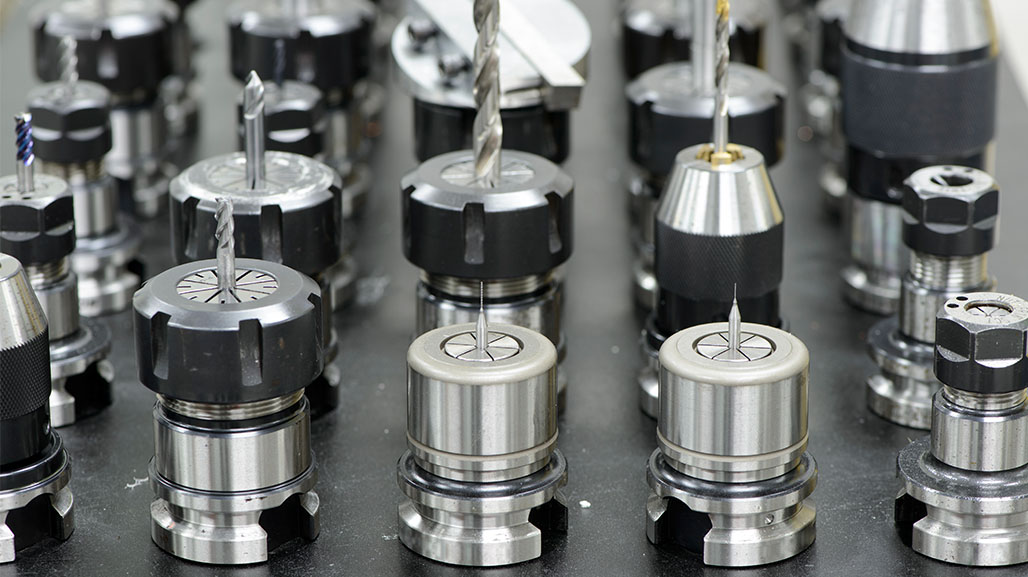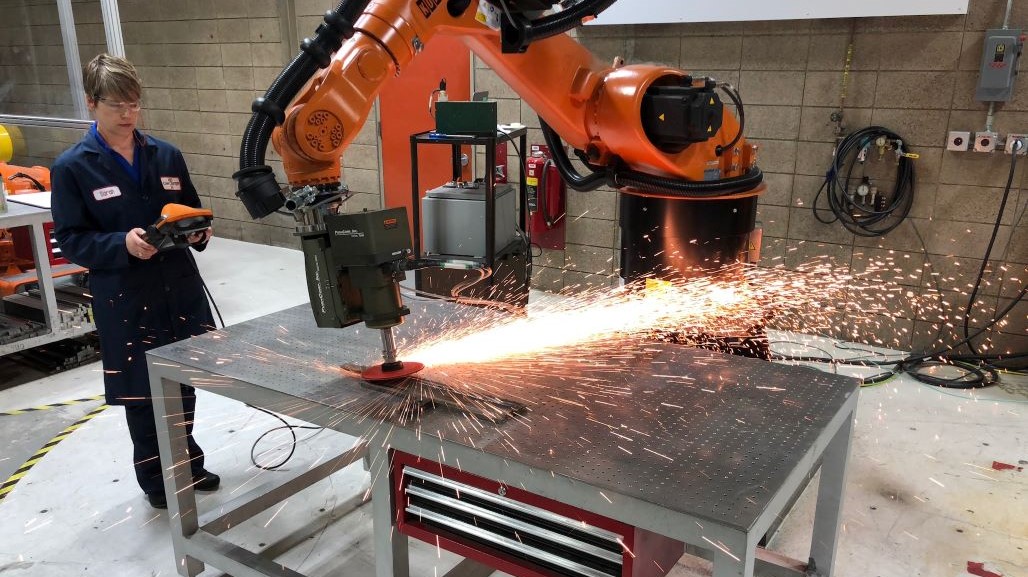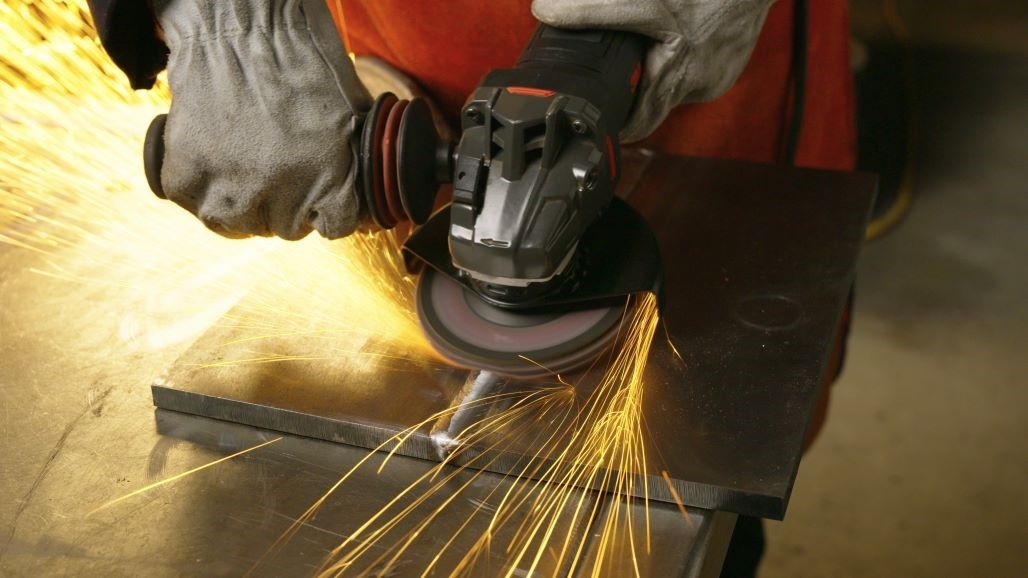5 Ways to Improve Employees’ Mental Health
Providing a safe, supportive working environment means caring for the mental health of employees as well as the physical. Here are five ways that manufacturers can improve mental health in the workplace.
Providing a safe, supportive working environment means caring for the mental health of employees as well as the physical. Here are five ways that manufacturers can improve mental health in the workplace.
You can’t see a mental illness like you can a physical injury, but both are harmful to a person’s well-being, and both deserve care and attention in the workplace.
According to the National Alliance on Mental Illness, 1 in 5 adults experience mental illness, such as depression or anxiety, and 1 in 20 adults have a serious form, such as schizophrenia or bipolar disorder. Given these numbers, there is a good chance that even small manufacturers have workers on the job who are struggling.
Mental illnesses negatively affect people at work—their job performance and productivity suffer, they are less engaged and they don’t communicate as well with co-workers, the Centers for Disease Control and Prevention says.
In manufacturing, poor mental health leads to increased absenteeism and a risk of workplace injuries. According to a [2017 survey by Mental Health America](https://www.mhanational.org/sites/default/files/Mind the Workplace - MHA Workplace Health Survey 2017 FINAL.PDF), manufacturing ranked among the bottom of all industries for mental health.
“Manufacturing employees face a unique combination of pressures that can contribute to high levels of stress, anxiety and other mental health issues,” Laura Hamill, chief people officer of Limeade and co-creator of the company’s well-being assessment model, told Thomas Insights. “Their success is determined by productivity, efficiency and output, requiring long hours and shift-based schedules that allow little if any time for flexibility or recovery. These jobs also tend to be physically demanding, repetitive and even dangerous.”
Providing a safe, supportive working environment means caring for the mental health of employees as well as the physical. Here are five ways that manufacturers can improve mental health in the workplace.

Until a company creates and fosters a culture that supports employees’ mental health, little else in this list will matter. The entire company, from the top down, needs to believe in the power of good mental health and work to achieve it.
Managers should be trained in how to recognize possible signs of trouble in employees and to take steps to address concerns.
“In manufacturing settings, managers and supervisors call the shots, so use them as vehicles for your good intentions,” Hamill told Thomas Insights. “This means educating them on how mental health contributes to their end goals, like productivity and safety. Then give them tangible tips for talking to employees about their well-being. It can be as simple as starting a meeting by asking ‘How are you, really?’ and taking time to listen to their answer.”
Read more: Mental Health and the Workplace: Why It Pays to Support Manufacturing Workers
To understand where the company could improve the well-being of workers, consider surveying employees—but be prepared to look through the results and act on them. “Asking for employee input but not listening is worse than not asking at all,” cautions labor and employment law firm Jackson Lewis P.C.
Also, recognition goes a long way in helping boost a person’s self-worth. It could be as simple as a handwritten note or an email, or a shout-out before a shift begins. Effective recognition is timely and specific to the person.

Because mental illnesses can’t be seen, they can be difficult to identify. Manufacturers can help workers recognize potential mental health issues by offering self-assessment screenings and other tools.
This workplace mental health assessment was created by the American Psychiatric Association Foundation, One Mind at Work and Mental Health America.
These online screening tools—for anxiety, depression, post-traumatic stress disorder (PTSD) and more—are from Mental Health America.
Beyond online assessments, the CDC recommends that employers offer free clinical mental health screenings to employees—or paying part of the cost—so employees can see a mental health professional, get feedback and receive a clinical referral if needed.

Having breaks during a shift can help workers recover physically and mentally.
To promote mental health, Jackson Lewis recommends adding a break during the day or making breaks longer. This may seem to fly in the face of a company’s productivity and bottom line, but the move could pay back with refreshed workers who are more enthusiastic and efficient.
The CDC suggests creating and maintaining dedicated, quiet spaces for relaxation activities.
Read more: Why Next-Generation Manufacturing Is All About Building Worker Trust
Even 10-minute breaks have benefits, as Sodexo shares from its research:
“Regular short bursts … of physical activity incorporated throughout the workday are linked to increases in productivity, concentration, goal-setting, commitment, self-efficacy, self-esteem, satisfaction, and physical and mental health. … Booster breaks (organized routine work breaks designed to improve physical and mental health and job satisfaction while sustaining or improving productivity) enhance social interaction, promote enjoyment and reduce stress.”
Sodexo says the key is to let workers decide what they do on their breaks but points to certain areas: physical activity, socializing, recreation, rest, reading, meditation and relaxation.
Stretching during breaks serves many purposes, including physical activity, socializing and meditation. When done correctly, stretching not only reduces the risk of physical injury, but also releases muscle tension and decreases stress hormones, which helps to fight against depression and anxiety.

Companies can establish programs and policies that promote mental health and make it easier for employees to access services.
Employee assistance programs (EAPs), for example, are workplace programs that help employees deal with difficulties going on in their lives—“identifying and resolving personal concerns, including health, marital, family, financial, alcohol, drug, legal, emotional, stress or other personal issues that may affect job performance,” the International Employee Assistance Professionals Association says.
Foresight, a workers’ compensation provider, recommends that manufacturers “work with their human resource teams to ensure employees are aware of their benefits—if eligible—concerning mental health, such as teletherapy, and psychology and psychiatric healthcare coverage. If these benefits are not provided to all employees, there may be short-term solutions that can be procured and offered, such as on-site counseling or support groups.”
Employers can remind employees that sick days can be used for mental health. Taken a step further, employers can establish mental health days as an employee benefit.

Manufacturing work can involve long hours of repetitive tasks performed to exacting specifications, to the detriment of a worker’s mental health. To combat this, companies could change things up.
Says Jackson Lewis: “Consider implementing a regular job rotation schedule so employees have more variety in their work. This can take the form of employees switching roles within their job duties. This will keep employees engaged and focused. This also allows employees to learn other roles and gain new responsibilities, which can help employee well-being.”
Some workers spend all day, every day on a part and never see what comes of it. Show them the fruit of their labor—how the part will be incorporated in the finished product, and what the product will be used for. This might increase a worker’s sense of purpose and connection to the larger team.




